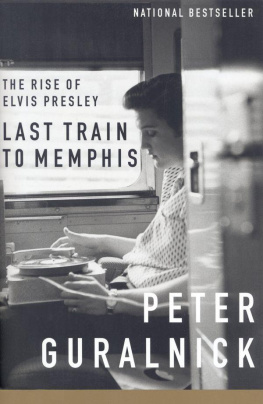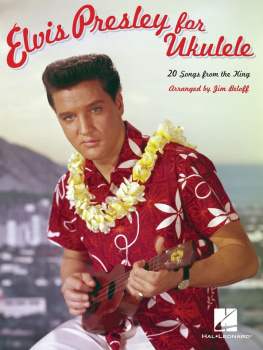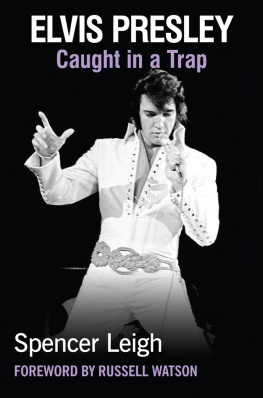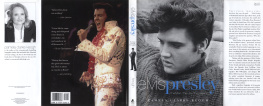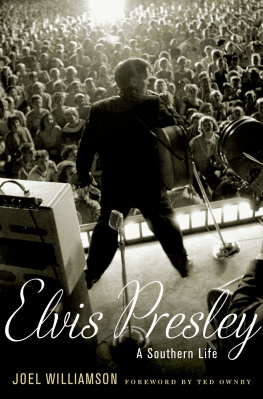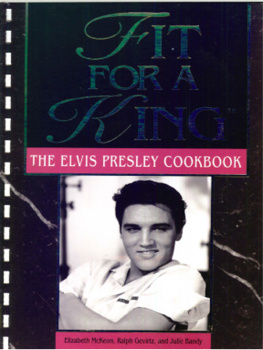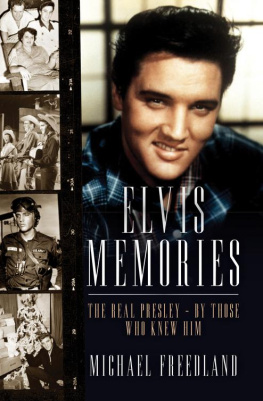Guralnick - Careless Love: The Unmaking of Elvis Presley
Here you can read online Guralnick - Careless Love: The Unmaking of Elvis Presley full text of the book (entire story) in english for free. Download pdf and epub, get meaning, cover and reviews about this ebook. year: 2012, publisher: Hachette Digital, Inc., genre: Detective and thriller. Description of the work, (preface) as well as reviews are available. Best literature library LitArk.com created for fans of good reading and offers a wide selection of genres:
Romance novel
Science fiction
Adventure
Detective
Science
History
Home and family
Prose
Art
Politics
Computer
Non-fiction
Religion
Business
Children
Humor
Choose a favorite category and find really read worthwhile books. Enjoy immersion in the world of imagination, feel the emotions of the characters or learn something new for yourself, make an fascinating discovery.
- Book:Careless Love: The Unmaking of Elvis Presley
- Author:
- Publisher:Hachette Digital, Inc.
- Genre:
- Year:2012
- Rating:4 / 5
- Favourites:Add to favourites
- Your mark:
Careless Love: The Unmaking of Elvis Presley: summary, description and annotation
We offer to read an annotation, description, summary or preface (depends on what the author of the book "Careless Love: The Unmaking of Elvis Presley" wrote himself). If you haven't found the necessary information about the book — write in the comments, we will try to find it.
Careless Love is the full, true, and mesmerizing story of Elvis Presleys last two decades, in the long-awaited second volume of Peter Guralnicks masterful two-part biography.
Last Train to Memphis, the first part of Guralnicks two-volume life of Elvis Presley, was acclaimed by the New York Times as a triumph of biographical art. This concluding volume recounts the second half of Elvis life in rich and previously unimagined detail, and confirms Guralnicks status as one of the great biographers of our time.
Beginning with Presleys army service in Germany in 1958 and ending with his death in Memphis in 1977, Careless Love chronicles the unravelling of the dream that once shone so brightly, homing in on the complex playing-out of Elvis relationship with his Machiavellian manager, Colonel Tom Parker. Its a breathtaking revelatory drama that for the first time places the events of a too-often mistold tale in a fresh, believable, and understandable context.
Elvis changes during these years form a tragic mystery that Careless Love unlocks for the first time. This is the quintessential American story, encompassing elements of race, class, wealth, sex, music, religion, and personal transformation. Written with grace, sensitivity, and passion, Careless Love is a unique contribution to our understanding of American popular culture and the nature of success, giving us true insight at last into one of the most misunderstood public figures of our times.
Amazon.com ReviewUntil Peter Guralnick came out with Last Train to Memphis in 1994, most biographies of Elvis Presley--especially those written by people with varying degrees of access to his inner circle--were filled with starstruck adulation, and those that werent in awe of their subject invariably went out of their way to take potshots at the rock & roll pioneer (with Albert Goldmans 1981 Elvis reaching now-legendary levels of bile and condescension). Guralnicks exploration of Elviss childhood and rise to fame was notable for its factual rigorousness and its intimate appreciation of Presleys musical agenda.
Picking up where the first volume left off, Guralnick sees Elvis through his tour of duty with the U.S. Army in Germany, where he first met--and was captivated by--a 14-year-old girl named Priscilla Beaulieu. We may think we know the story from this point: the return to America, the near-decade of B-movies, eventual marriage to Priscilla, a brief flash of glory with the 68 comeback, and the surrealism of fat Elvis decked out in bejeweled white jumpsuits, culminating in a bathroom death scene. And while that summary isnt exactly false, Guralnicks account shows how little perspective weve had on Elviss life until now, how a gross caricature of the final years has come to stand for the life itself. He treats every aspect of Presleys life--including forays into spiritual mysticism and the growing dependency on prescription drugs--with dignity and critical distance. More importantly, Careless Love continues to show that Guralnick gets what Presley was trying to do as an artist: I see him in the same way that I think he saw himself from the start, the introduction states, as someone whose ambition it was to encompass every strand of the American musical tradition. From rock to blues to country to gospel, Guralnick discusses how, at his finest moments, Elvis was able to fulfill that dream. --Ron Hogan
From Publishers WeeklyOpening with the 25-year-old Presleys nervous return to the United States in March 1960, this second volume of Guralnicks definitive and scrupulous biography then circles back to describe the singers military service in Germany, where he encountered two elements destined to define his post-Army life: prescription drugs and 14-year-old Priscilla Beaulieu. His manager, Colonel Tom Parker, was by now a major factor in Elviss career, and Guralnick is the first to explain successfully how the Colonel, a one-time carnival huckster, maintained an enduring hold on a man whose genius was beyond his grasp. Presley believed that they were an unbeatable team, and the Colonels success in keeping Elviss popularity alive during the Army stint seemed to prove it. The subsequent results of the Colonels go-for-the-quick-buck mentality?crummy movies made on the cheap, mediocre soundtracks rather than studio albums?shook Elviss faith in his manager, but he remained loyal through the inevitable artistic and commercial decline. Guralnicks meticulously documented narrative (which draws on interviews with virtually everyone significant) shows the insecure, fatally undisciplined Elvis to be his own worst enemy, closely seconded by the Colonel and the entourage of hangers-on who feared change and disparaged Presleys tentative efforts to grow, especially his spiritual apprenticeships to his hairstylist, Larry, and to Sri Daya Mata. When Elvis roused himself?for his 1968 television comeback, for the legendary Chips Moman-produced sessions of 1969, for the early Las Vegas shows?he was still the most charismatic performer in popular music, with a voice that easily encompassed his rock-and-roll roots and his desire to reach beyond them. But as the 70s wore on, Guralnick shows, he became imprisoned by laziness and passivity, numbing his contempt for himself and those around him with the drugs that finally killed him in 1977. As in volume one, Last Train to Memphis, Guralnick makes his points here through the selection and accretion of detail, arguing in an authors note that retrospective moral judgments [have] no place in describing a life. While some readers may wish he had occasionally stepped back to tell us what it all means, the integrity of this approach is admirable. Many writers have made Presley the vehicle for their own ideas; Guralnick gives us a fallible human being destroyed by forces within as well as without. Its an epic American tragedy, captured here in all its complexity. Major ad/promo; author tour.
Copyright 1998 Reed Business Information, Inc.
Guralnick: author's other books
Who wrote Careless Love: The Unmaking of Elvis Presley? Find out the surname, the name of the author of the book and a list of all author's works by series.


